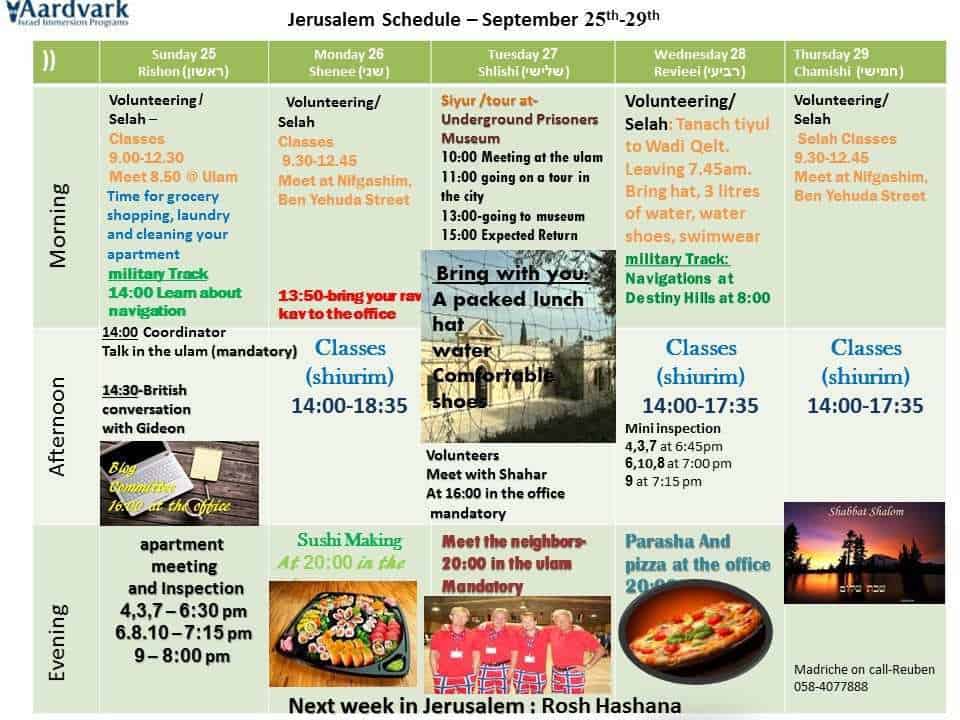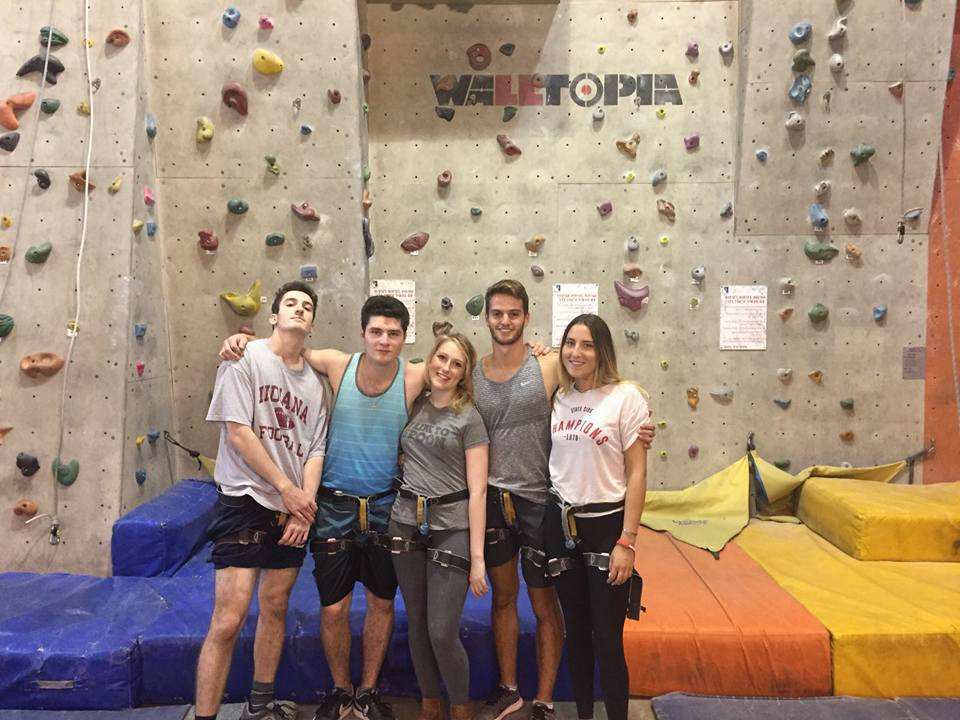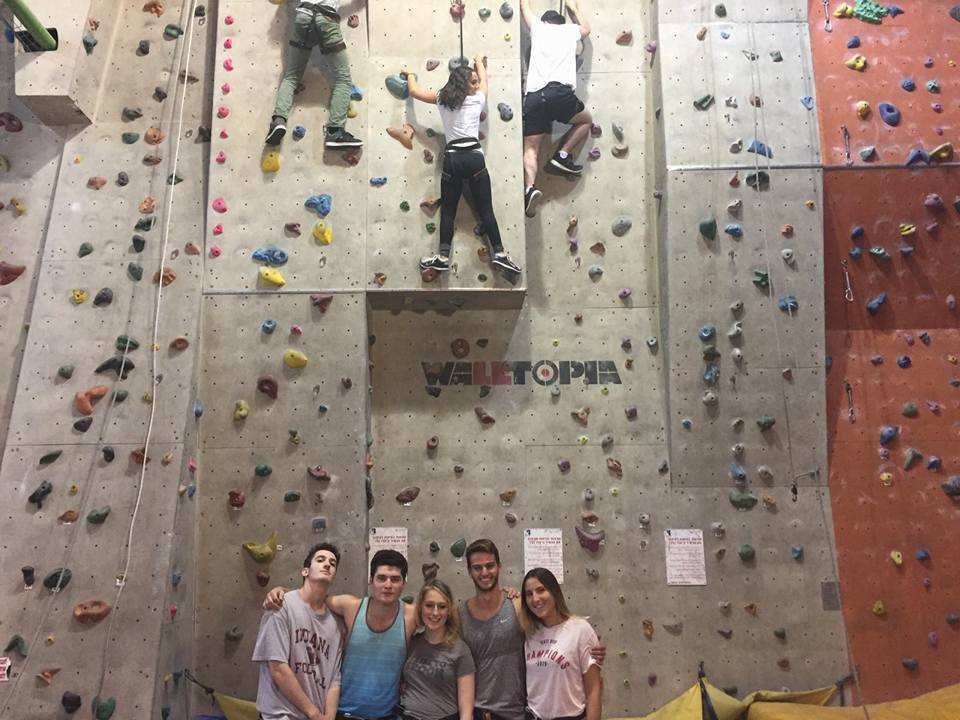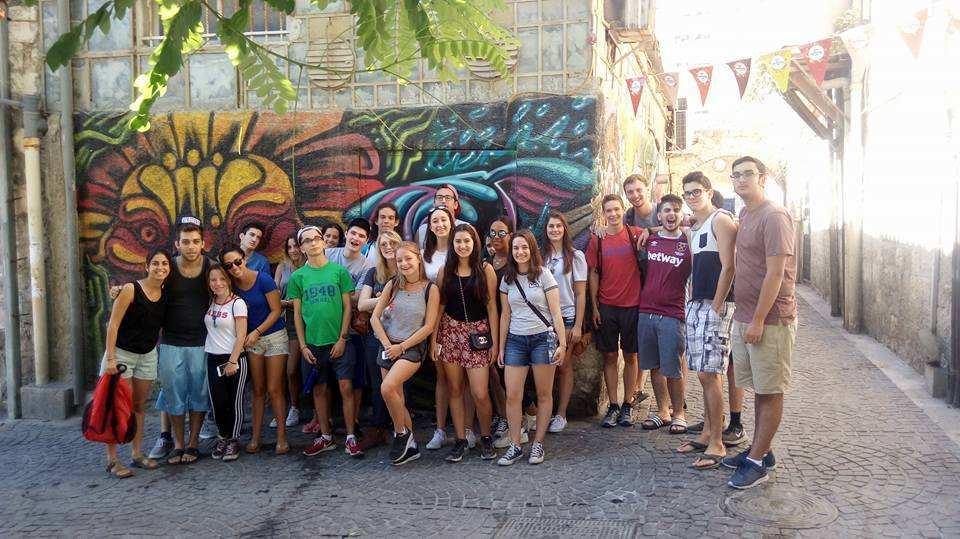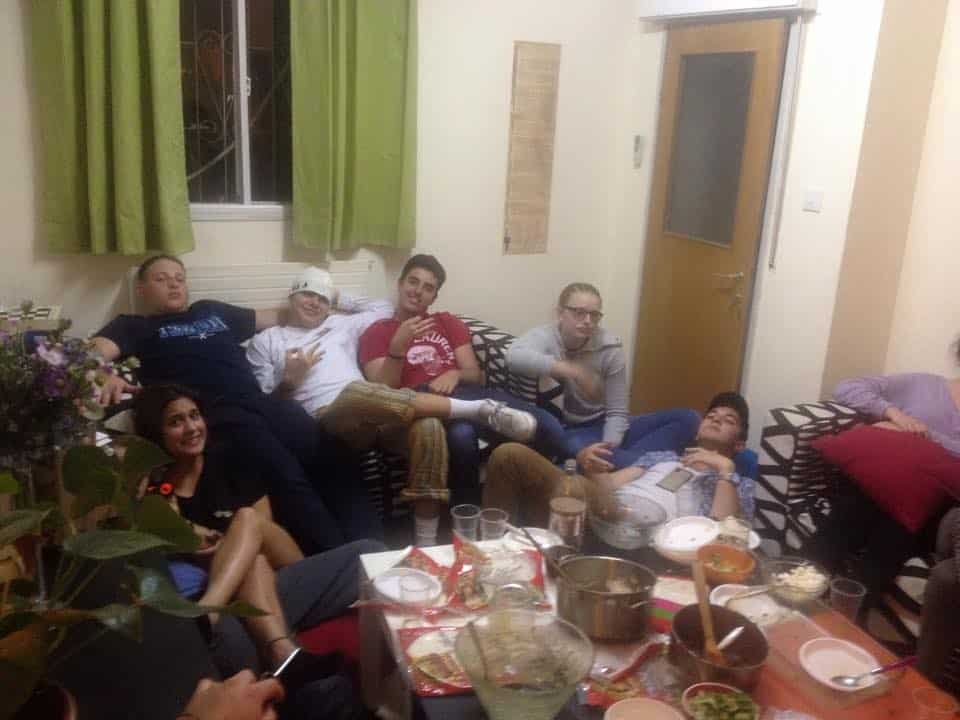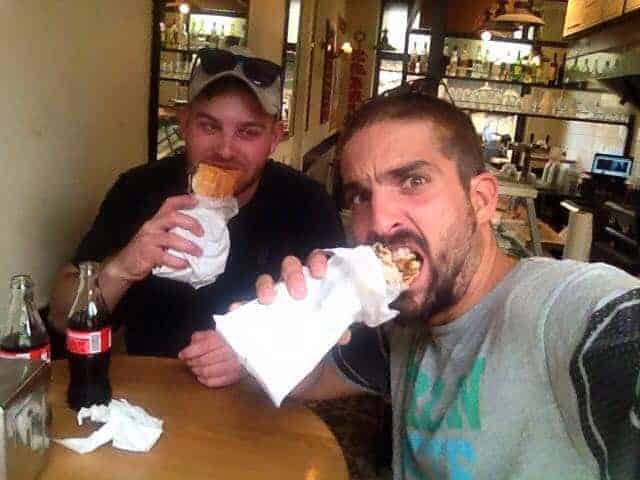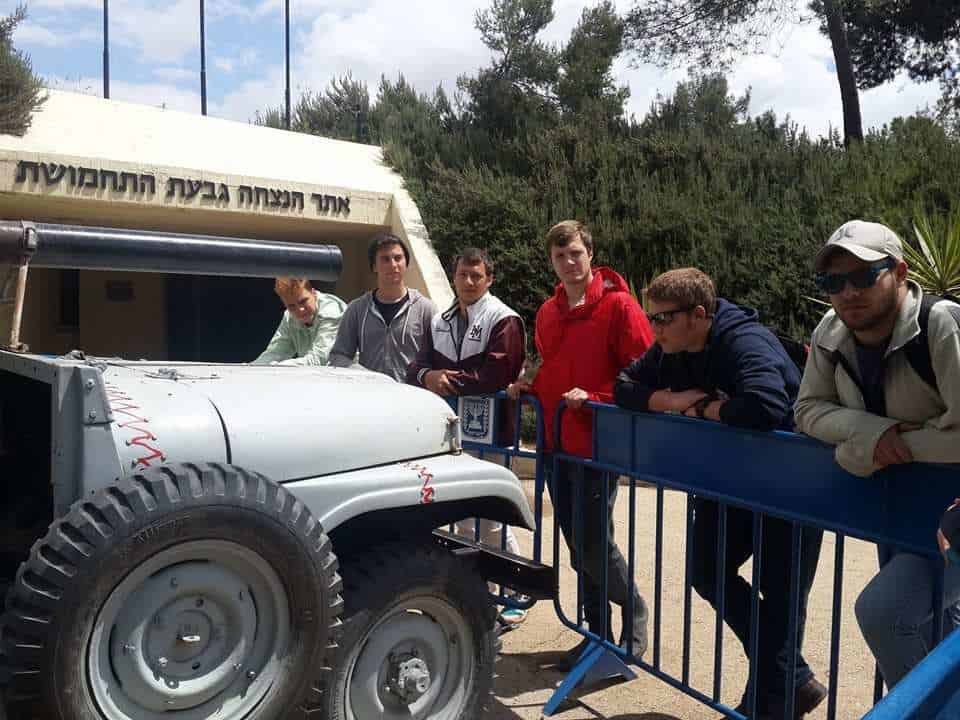Dear Parents,
Our week in review here in Jerusalem:
In our apartment meetings, we discussed and processed the past 3 weeks and how they went for our students using the My Israel Journey workbook as a guideline. We explored the concepts of the comfort, challenge, and chaos zones by discussing the different experiences they have encountered throughout the beginning of the semester and how they reacted and felt about each experience.
On Monday for our evening activity, we all went Rock Climbing at Teddy Center – it was a lot of fun to see our students try to climb their way up the walls.
For our weekly siyur – we went on a Graffiti Tour of the Nahlaot neighborhood in Jerusalem and learned all about the fabulous street art of the city. Through the art, we understood more about the political situation in the country and different opinions of the people in this diverse city. One of the students said that it helped him feel more connected to the people of the city. We also got to know one of the most interesting neighborhoods in the city- Nahlaot.
On Tuesday, we baked Challah. We started off by making the dough and while we were waiting for it to rise, we made some pesto olive spread and roasted bell peppers to go with the challah. We did hafrashat Challah and then we learned some braiding methods. We baked the Challah and then ate it straight away. It was delicious!
A little about the academic aspect of our program, this week Rachel Heimowits wrote you about the Reading & Writing class she teaches:
This past week the students spoke about literature and writing. They meet three times a week and each day is dedicated to different projects. On Mondays, the students are reading an Israeli novel by Meir Shalev called A Pigeon and a Boy. This week, they read the first chapters and began to talk about motifs and images that Shalev uses to carry us through the story arc of the book. On Wednesdays, they read other Jewish and Israeli works, including poetry, plays, essays and short stories. This week they read and spoke about Nathan Englander’s short story, “Free Fruit for Young Widows.” This story will kick off a series of works we will read about being an Israeli soldier, examining questions of ethics, morality, and learning some history of the Jewish Army. These ethical and moral questions that arise in any discussion of war will be emphasized through the chaggim, when the questions of life and death touch us all. On Thursdays, the students have “Writer’s Workshop” in which students bring their own writing and we work as a group to help them see where their writing can be improved, assisting them to become better writers. This past week had began with a piece by Mati Davis.
The class has already found its footing. The Students are working really well with each other and are completely engaged. Computers are off and phones are down with barely a word from me. I am excited by the comments and questions I’m getting and in how beautifully this small class is already working as a group.
Parsha and Pizza had a fruity theme this week as the group studied the Torah portion of Ki Tavo. Rabbi Marc spoke about the commandment of ‘First Fruits’ – when the Jewish people were set to enter the Land of Israel after 40 years of wandering they were told to bring their first fruits to the Temple in Jerusalem. Once at the Temple there was a declaration to be read in front of the Kohen (priest). We watched a timelapse movie of fruits growing on trees and talked about the temptation to see the fruit as a source of income (“I can sell these and make money”) or as a source of desire (“I gotta eat this juicy fruit right now”). But the Torah asks us to pause and before running to make profit or satisfy our hunger, we go to the Temple and say thank you to God for sharing His bounty with us. One commentary (Kli Yakar – 16th century Prague) explains the command as a warning against arrogance. How easy it would be for the ancient Israelites to finally reach the Promised Land, wipe out their enemies and live the good life of ‘milk and honey’ and think it was all down to human awesomeness. Bringing the fruits is a lesson in humility that encourages us to see God’s role in the world.
On the Military Track– Shahar started teaching the students how to navigate. They have one more navigation session and then they will go navigating as a group in an IDF navigations area.
Next week in Jerusalem – We are going to study about the Jewish underground military movements that existed to protect the Jews before the creation of the State of Israel.
